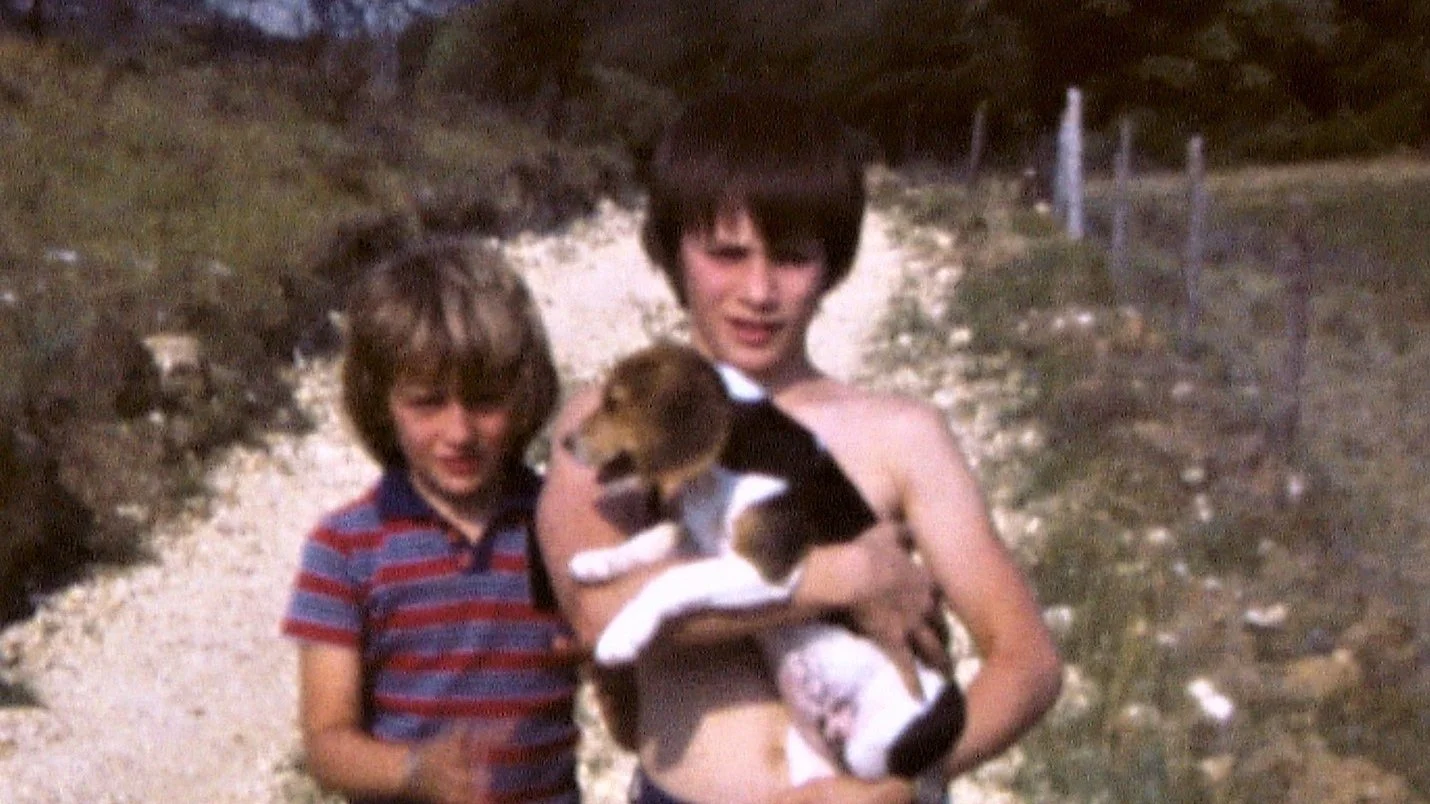The Super-8 Years
The Nobel Prize-winning writer Annie Ernaux curates her own home videos to create a vividly personal take on the 1970s.
It is no exaggeration to describe this film as unique. The Super-8 Years unexpectedly finds the French author Annie Ernaux creating a film with her son David. It is made up of footage shot between 1972 and 1981, this being taken from home movies by her ex-husband, the late Philippe Ernaux. If the images come from him, the words that now accompany them and which are so crucial to the film are supplied by Annie Ernaux herself who delivers them in voice-over. Her thoughts as she looks back on this period of her life (she was actually born in 1940) are a reflection on these past times and on their nature and are often very French in character. That the words count for so much should not be a surprise given that Ernaux was recently granted the Nobel Prize in literature – I have not read any of her books but greatly admired the 2021 film Happening which was based on her novel L’Événement published in 1980.
For a film to consist exclusively of pre-existing footage is comparatively rare but certainly not unique. What puts The Super-8 Years in that category is the fact that it uses this mode to achieve something quite new. Many older people look back on their lives and feel that the world is now a changed place: that thought is quite common, but no film until now has caught the sense of it so totally. It may be a limited achievement of less interest to younger viewers and such a focus is in a certain sense narrow. That's why I am not inclined to think of this film as a masterpiece, but I regard it nevertheless as a small triumph. Furthermore, to recognise how that has been achieved is fascinating in itself.
The initial impression here is that the film’s key element lies in the substantial voice-over comments by Annie Ernaux. She is looking back on the decade when her marriage to Philippe Ernaux, a civil servant, meant that, despite her interest in writing and the publication of her first books, her life was first and foremost that of a wife and mother with her lifestyle as a woman in her thirties conforming to the standards and expectations current in society at that time. The images we see include trips abroad (Chile, Corsica, Spain, Portugal, Tangier and Moscow among the places visited) but much of the emphasis is on their homes in France as the family move from place to place. We do see Annie Ernaux’s mother, Blanche, and her young sons but this is not a slice of autobiography at heart even if the voice-over comments give increasing hints of problems in the marriage less than fully defined. Indeed, if The Super-8 Years were a more conventional work, one to be judged as autobiography, it would fall short through its lack of detail, but instead we come to recognise this film as being first and foremost a social document. The position of women is crucial here albeit that the overall picture is much wider than that.
What is immediately striking about the home movies that make up the visuals is the fact that they are not images of any special pictorial quality but, as it turns out, that only adds to their universality and increases their significance. Just because they are ordinary family pictures they represent the essence of their era capturing the flavour, the attitudes and the look of the 1970s in a way which makes viewers recognise the extent to which they bring back memories of their own lives in that era. Indeed, the impact in this respect is so subtle yet so strong that one comes to realise that, contrary to what might be expected, what we see adds an enormous amount to what the film conveys – the spoken words may seem to dominate but in fact the images are a vital part of the experience here. I would add too that where sounds or music have been added to the silent images this has been done with a subtlety that makes it feel entirely in keeping.
In more ways than one The Super-8 Years could be thought of as a small film (even its length, wisely I think, is considerably shorter than most features). But in the event, it provides the strongest possible reminder of the extent to which the world forty to fifty years ago was in so many ways completely different from life today.
Original title: Les années Super-8.
MANSEL STIMPSON
Featuring archive footage of Annie Ernaux, David Ernaux-Briot, Éric Ernaux, Philippe Ernaux and Blanche Madeleine Dumenil Duchesne, with the voice of Annie Ernaux.
Dir Annie Ernaux and David Ernaux-Briot, Pro Philippe Martin and David Thion, Written by Annie Ernaux, Ph Philippe Ernaux, Ed Clément Pinteaux, Music Florencia Di Concilio.
Les Films Pelléas/Arte France Cinéma/CNC-Curzon.
64 mins. France. 2022. US Rel: 16 December 2022. UK Rel: 23 June 2023. Cert. 12A.


